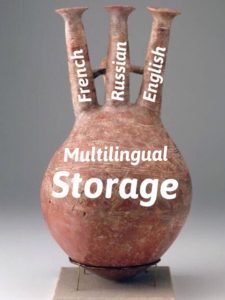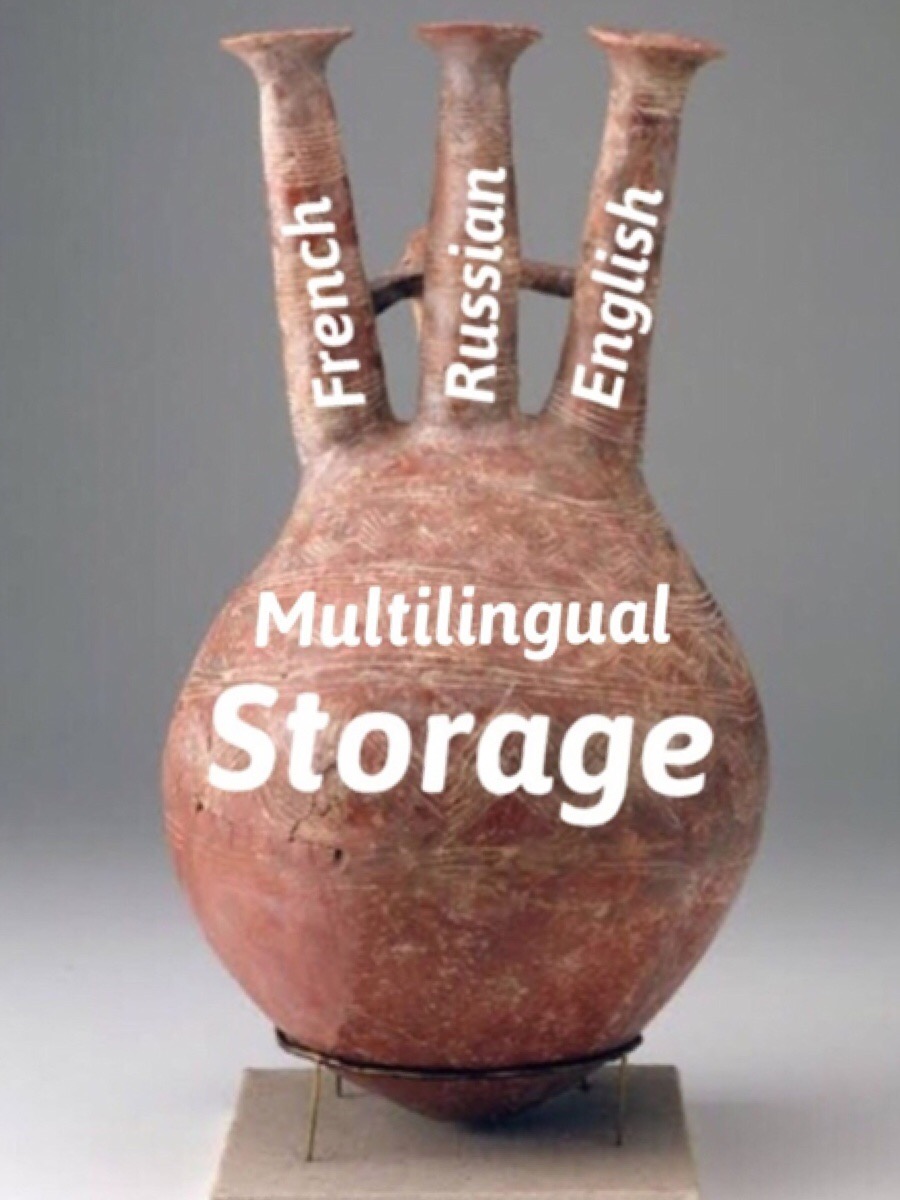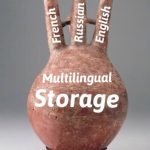
Children of multilingual families rarely choose what languages they will learn. They receive and accumulate what is given them by the family and the outside world. However, once children begin to develop their linguistic competencies, they are compelled to make choices each and every time they use language. Just think of the complexity of these choices and the amazing capacity and flexibility of young multilingual minds!
“How did it happen that you speak three languages?” I ask my granddaughter Michelle as we sit on the porch outside her home near London. A seemingly simple question suddenly poses a challenge to a six-year-old. “I don’t know,” she says. “Maybe when my Mama had me in her belly she spoke three languages . . .” It takes her a few seconds to reconsider, and then a more logical (from our perspective) answer emerges: “Oh, I know, I speak Russian with Mama and French with Papa. And my preschool teacher taught me English.”
It seems that for Michelle and her younger brother Maxim, each linguistic choice, each transition from one language to another, happens seamlessly and naturally. Russian is part of Mama’s personality and her family, and French is part of Papa and his family. English has a strong presence everywhere. It is useful to think of these languages not as separate domains but as a combined multilingual resource. Children learn to use this resource through experimenting with it, mixing the language ingredients, and learning the best ways to convey meaning. We are lucky to be involved in this process, but we also bear the responsibility for enriching the language they store.
My grandchildren’s language acquisition has involved some innovative choices, some unexpected side trips, and many funny moments. Both Michelle and Maxim continue to experiment with grammatical intricacies, word choices and phonology based on language that they have received. With the start of their school in the UK, the share of English language during the day has increased. Therefore, it is now especially important that their family continues to provide motivation and support for learning home languages and literacy.
Sometimes parents are concerned that the use of home languages might compromise learning in the language of instruction at school. However, research, experience and common sense suggest that using the potential of all linguistic resources available to multilingual children is beneficial for their cognitive, social and emotional development, and ultimately for their success in the global community.
Members of multilingual families can turn many moments into opportunities to build proficiency in home languages. These opportunities sometimes get lost in the ocean of chores and daily routines, engagement with gadgets, and the “I’ll do it on the weekend” mentality. We must keep in mind that lost opportunities accumulated over time require a lot of catching up later.
How can we parents and grandparents help children “store up” language?
- Look at the schedule and make a list of language enrichment possibilities within our reach.
- Use our native languages with the children consistently, making them always a part of the linguistic landscape.
- Seek out new sources of language input: friends, activities, online sessions and/or lessons—these are becoming quite popular as distance learning. Adult friends, cartoons, movies and books are also great. The world is multilingual—there are opportunities to meet same-language groups everywhere!
- Make good strategic use of our extended family: relatives and important others who are dedicated to educating children and happy to watch them grow. Michelle has begun serving as my Russian-language narrator for home movies filmed in French. Maxim is beginning to add his voice as well!
Our year has been full of family events—holidays, visiting cousins, and birthday parties. I remember a moment when children welcomed an invited birthday party star in London—a Spiderman. Michelle’s cousin Zoya was showing him her jump rope skills, which Michelle had not yet mastered. I could see Michelle’s intense expression until she seemed to have made a decision. She went closer to Spiderman and said seriously and proudly: “And I can speak three languages!” We hope our children will always feel proud of their linguistic accomplishments! If our children and grandchildren value their ability to speak more than one language, then that’s the best reward for our efforts.

Columnist Olga Steklova is a retired EAL teacher at ISB and trilingual herself. She shares tips for raising multilingual children as she observes her own grandchildren. To read more columns, click on the Ask Olga! category below.


November 8, 2019 at 2:56 am
Great read Olga!
November 8, 2019 at 4:53 pm
you are such a good teacher for us too Olga bravo!
November 9, 2019 at 2:04 pm
Excellent article Olga! A wonderful impetus and great strategies for parents to use in continuing to bring up multilingual children.